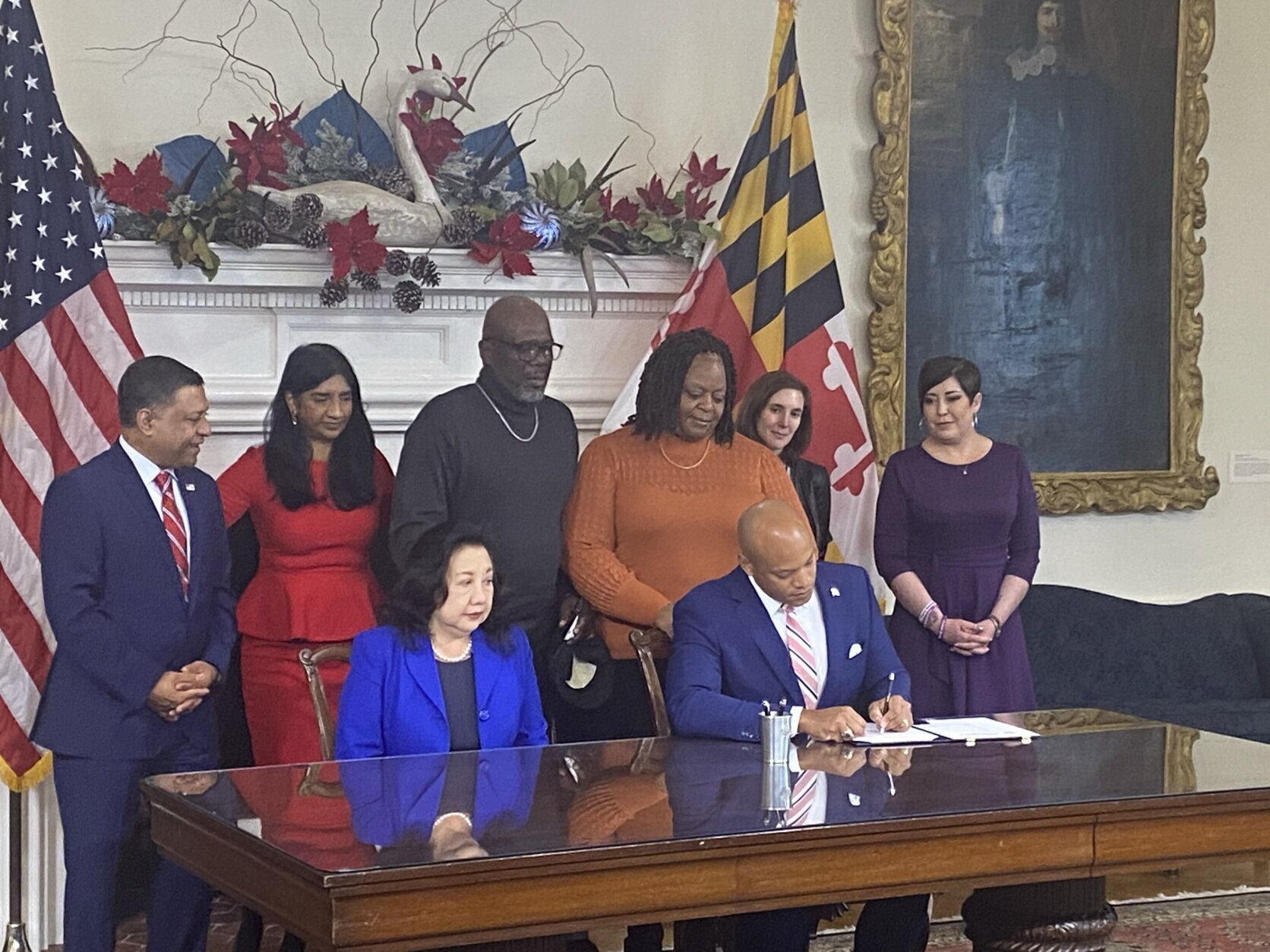
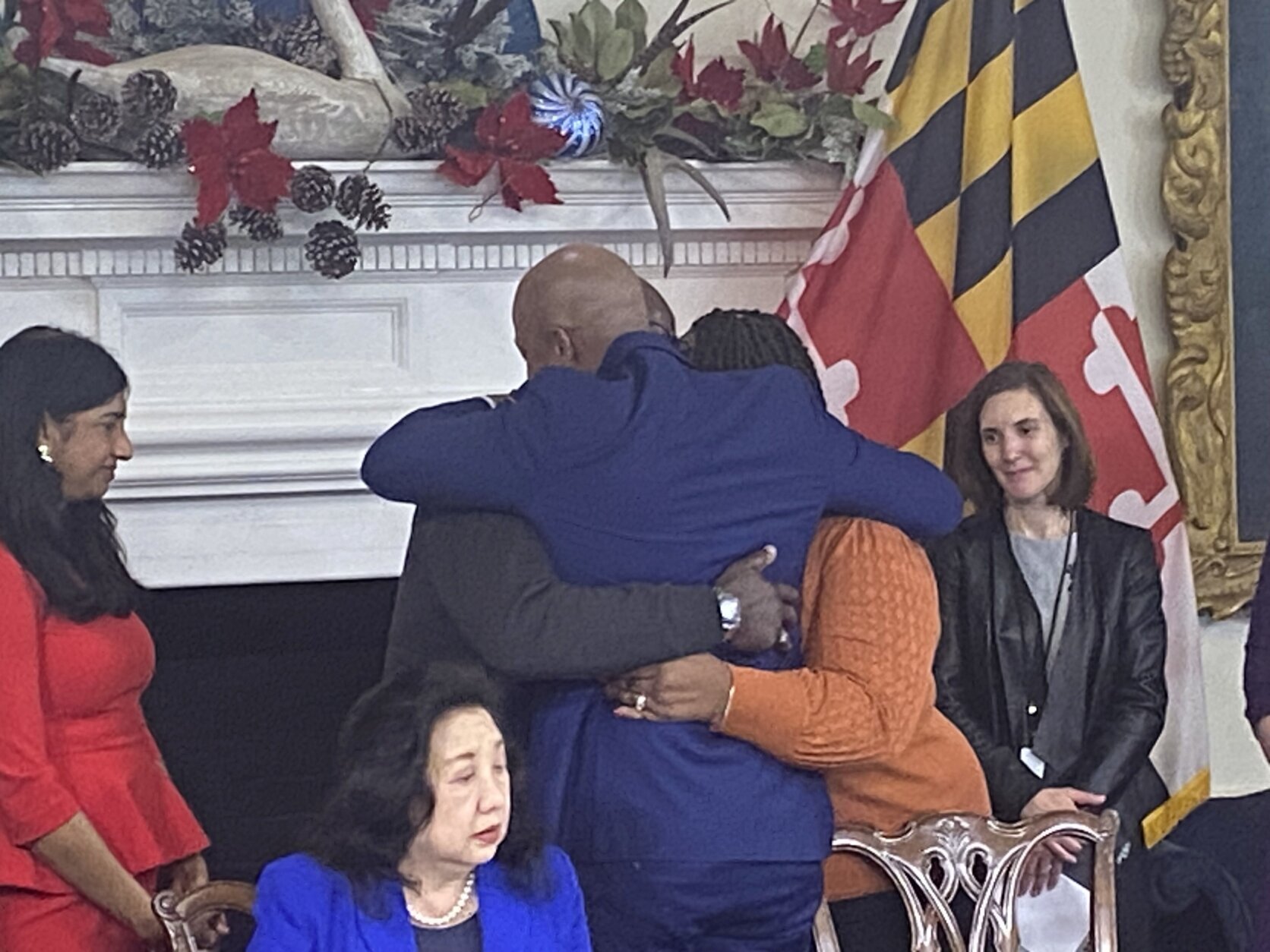
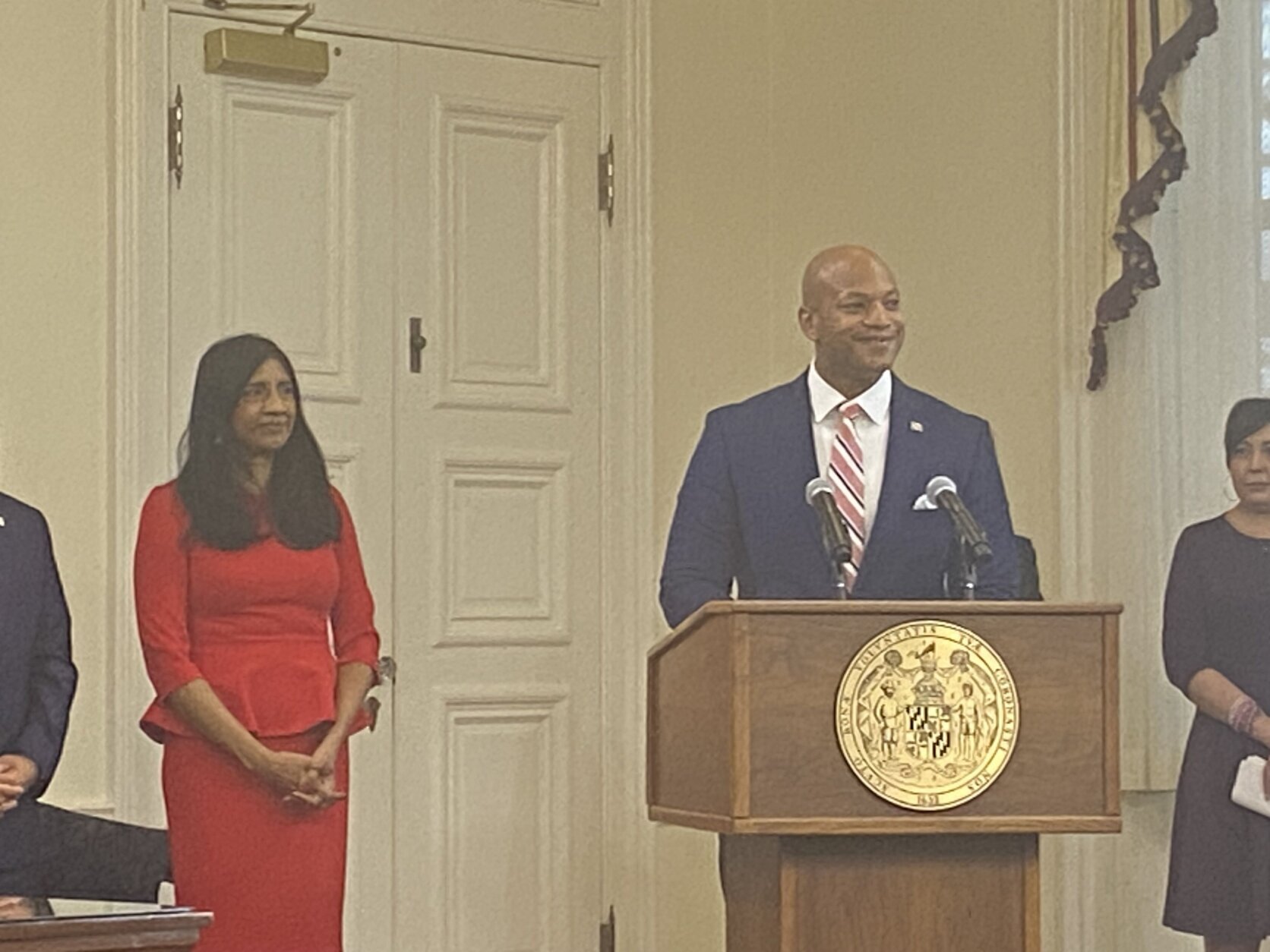
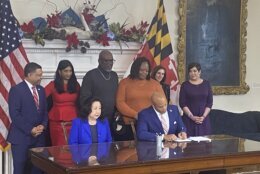
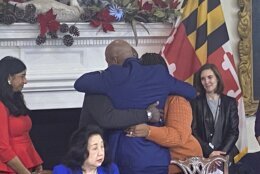
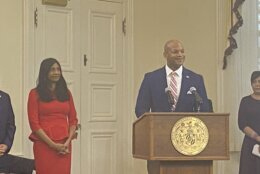
Fentanyl and other types of opioids drive most of the overdoses in the state of Maryland, but as Gov. Wes Moore noted, not all of them. On Thursday, he announced a new executive order aimed at broadening the effort put into helping those battling substance abuse.
Of those who spoke, the governor, Lt. Gov. Aruna Miller, and Emily Keller, the state’s special secretary for opioid response, all noted the impacts fatal overdoses have had on the lives of friends and family members.
“These issues are personal. It’s important,” Moore said.
The executive order he signed on the top floor of the state house renames the state’s Opioid Operations Command Center to the Maryland Office for Overdose Response.
“The opioid epidemic is one of the lead drivers of overdose deaths in Maryland. But it isn’t the only driver,” the governor said. “We need to look at the issue of overdose broadly. And this name will reflect that philosophy.”
The size of the group’s advisory council will expand from seven to 18, and include the involvement of more state agencies than before. The office is also moving into the state’s health department.
“There were 2,583 fatal overdoses in the 12 months ending in July of 2023,” said Alyssa Lord, Maryland Department of Health deputy secretary of behavioral health. “Fentanyl was involved in over 81% of these overdoses.”
The new advisory council will be chaired by Miller, and aims to engage with both the public health and public safety sectors and the federal government for solutions. Joining Miller was Dr. Rahul Gupta, the first doctor to head the Office of National Drug Control Policy.
“I lost my brother in law, Ed, in 2017, to opioid overdose. Eddie was a really funny individual. And I enjoyed my time with him,” Miller said. “I feel that it’s in my responsibility to make sure that others don’t suffer the way in which my brother in law did. I never saw it coming. I never knew he was struggling with this.”
Moore, Miller and others all acknowledged the impact overdoses have not just on the victims, but their families, friends and communities.
“It knows no borders. It knows no boundaries. It doesn’t know ZIP codes. It doesn’t know socioeconomic restrictions,” Moore said. “It finds its way in so many of our communities and it impacts all of our communities. Substance disorder is not a West Baltimore issue. It’s not a West Annapolis issue. It’s not a Western Maryland issue. It is not an Eastern Shore issue. It is a challenge that each and every one of us must grapple with.”
Moore himself talked about the loss of his friend David Lunn Jr. just a few years ago to an overdose.
“He literally comes from one of the kindest and most loving families that I know,” Moore said. Sitting in the front row with Moore were David Lunn Sr. and Tammy Lunn.
“I think it’s easy to focus on how the victims of overdose leave us at the end of their lives, instead of celebrating the lives that they lived, instead of celebrating the fact that they made all of us better,” Moore said. “Overdose victims are more than statistics. There are people with hopes and dreams and aspirations and achievements. That was true of David. That’s true of many others.”
He then had the Lunns join him at the desk in the center of the room so he could sign the executive order and then give them the pen that he used.
Before the first of many embraces between the governor and the Lunn family, he added, “your son was a blessing. And I miss him every day.”








